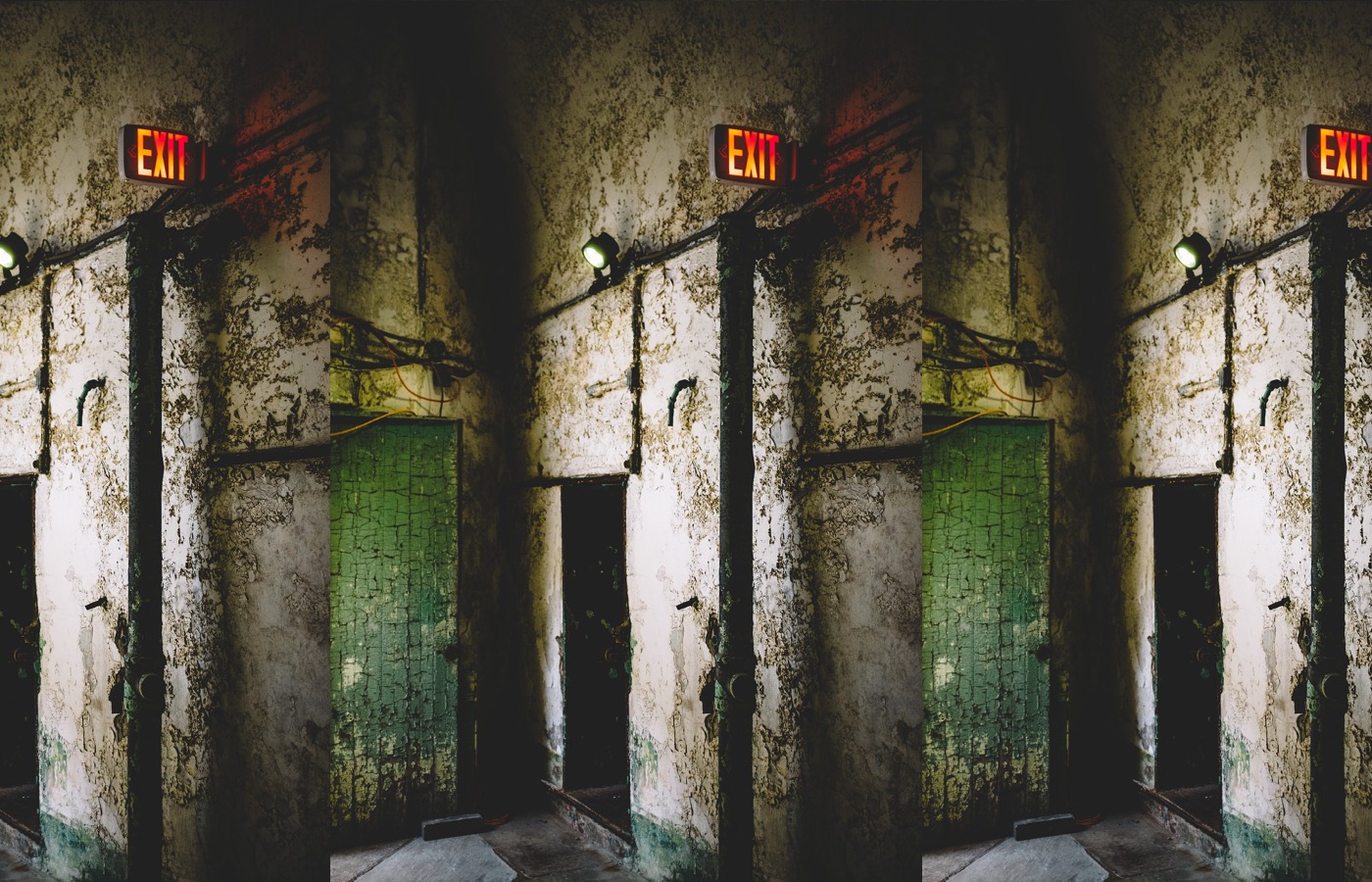Get Real with Carla Stockton
—

I am at the Richard Rogers Theater, watching the tech systems being loaded in for Hamilton’s opening on Broadway. The biggest show to come to Broadway, the most highly touted, the most expectantly awaited, and the Sound Supervisor is little Nicky Borisjuk, all grown up.
I am in awe of this realization. Some of the equipment, including the sound system, wasn’t even invented when I first met Nick, and watching him oversee the adjustment of mics, the placement of speakers, etc., and managing his control board, I can’t help but let my mind drift back to my first salient memory of him, in 1994.
I was director of a fledgling drama club at Nick’s alma mater in North Haven, CT, and we had just managed to assemble enough discarded wood to be build something that resembled a real set for a low key production of Much Ado About Nothing. Mike Goglia, the TD and head carpenter, who was himself only a sophomore, was barking orders at the crew, expertly keeping everyone on task, and the stage was actually looking like we might have a play in a few weeks. Mike’s father usually helped out in these endeavors, but that day Dad, a teacher in another school, was busy with duties at his own venue, so the crew – a few boys, a couple girls and I –were alone, and I had to leave the stage for a few minutes to retrieve some additional materials. I asked the kids to refrain from using power tools while I was away, but knowing how anxious they were to get things done, knowing their memories for instructions would be short-lived, I rushed through my errand and was back in the auditorium in under twenty minutes.
As I walked out of the bright sunshine into the cavernous room, my eyes adjusting to the dark, I squinted to see past the auditorium’s 1250 seats to the distant stage. There, seated in the only pool of light in the house, sat Nick. I couldn’t tell exactly what he was doing, but he was sitting on the floor, downstage center, and I knew that wasn’t good.
“Uh, Ms. Stockton,” Michael called shyly across the auditorium. “I think you might want to come down here as quickly as you can. Nick’s had a little accident.”
With my heart in my stomach, I rushed to the stage, and sure enough, as I got closer, I could see that Nick was clutching his leg, and there was blood, much blood, in the vicinity.
He was holding the circular saw, which, I was grateful to note, was unplugged, and there was a gaping gash in his thigh. But Nick was smiling his characteristic broad Alfred E. Newman grin. “I made a perfect cut!” he crowed. Before I could gasp or chide him, he held up the wood he has been cutting, and, sure enough, it was a perfectly oblong block severed from a large plank that the boys had carried in and laid on the stage earlier that day. “I fixed it!”
Nick was then, as he is now, a problem solver. He told me, “I needed to make a cut at a precise angle, and the only way I could get it to work was to place the circ on my lap and pull it toward me.”
It’s a testament to his eye for detail and the standards to which he holds himself that he was in this predicament. And it is proof of his phenomenal self-assuredness. It is also a testament to his incredible luck that the only thing severed that day was that block of wood. In fact, the accident was somewhat anticlimactic; his parents fetched him, then fetched his sister, now a professional soccer player, from soccer practice, took her home for supper and then took him to the hospital, where he was summarily stitched and released in record time.
I didn’t know it then, but the incident underscores the kind of confidence, fortitude and raw hutzpah that Nick needed to propel himself up the rungs of the Broadway tech world, where he managed to ensconce himself by the time he finished his sophomore year of college, less than four years later.
Problem solving is what Nick does as a Sound Supervisor, a Sound Designer, a Sound Technician, all positions he has held consistently since he left high school.
By tenth grade, Nick was our universal Mr. Fix-it. There was nothing he could not repair if he gave it enough attention. He could correct carpenters’ mistakes, readjust lights, re-sew a costume better than any specialist. He was the TD’s second in command, and he was so invaluable that one year, when he was working for me in a semi-professional company I had founded, I could not find any other title to put in the program under his name except Assistant to the Director and the Producers.
But it wasn’t clear which path Nick would follow out of our hallowed halls. Even while he worked with me and the drama club, I was aware that Nick was a musician, that his sense of music and his ear for the way sounds mix were extraordinary. He spent hours practicing his trombone, which he loved but also hated for keeping him away from the theater work. Whenever the sound tech, from whom we rented equipment for every show, would load in the mics and amplifiers, Nick would accurately critique his sound checks and say things like, “He’s not getting it.“ Eventually that sound man – the sole sound service provider for most of New Haven, Hartford and Middlesex Counties – recognized what a resource Nick was, and he began requesting that Nick check the mix or adjust the pitch as he prepared the equipment.
Nick wanted to make theater his life, but he had a pair of present, devoted, supportive parents, who believed his future lay in his music. They insisted that he audition for conservatory and study pedagogy as well; music teachers are always in demand, but theater geeks run the risk of long-term unemployment.
So Nick went off to Boston University, where he did not thrive. “I spent hours, no days, at a time alone in tiny basement practice rooms, just me and my instrument and no windows. It was thrilling playing in the bands and orchestras, but the practicing by myself thing really bummed me out. I wanted to be in a big room with lots of people solving problems.”
His unhappiness aversely affected his grades, and his parents insisted that he leave the private conservatory program at BU and transfer to public UCONN, where he was accepted. Before classes started, when Nick was in Storrs on a look/see expedition, he wandered into the university theater. The Connecticut Repertory Theatre Company was in a tech rehearsal for the show that was about to go up, and the crew had stumbled onto a problem they could not solve. Nick sauntered into their midst, and observed the chaos, the energy flying about the space, and he thought, “I wish I could be part of this.” He asked if he could take a look at the issue, and, because they had no idea who he was or where he came from they let him. And then he solved the problem.
The Tech Director there was amazed. “Where did you learn to do that?” He demanded. Nick explained what he had done in high school and produced his portfolio of photos and blueprints from all the productions he’d been instrumental in designing and building. Clearly, the UCONN theater department could use a hand like Nick, but, the TD told him, “We can only accept inter-departmental transfers.” With that, Nick explained that he had just transferred from Boston to UCONN, and he left the theater to walk over to the Music Department and inform them that he would not be attending. He registered instead as a Tech Theater Major.
At first, Nick thought his education would lead him to lighting or set design. But during a tech rehearsal for a production of Boys Next Door, a sound problem arose, and Nick stepped forward to solve it. Jack Nardi, the Rep’s Technical Director and Sound Supervisor, suggested he concentrate in sound, an area for which few people have the natural knack. It was a perfect fit.
By the end of that first year at UCONN, Nick was working as Sound Engineer/Designer for the CRT summer Nutmeg series, where he pushed for a system upgrade and got the department to install new playback computers and speakers. “Now I had some real toys to play with!” Nick laughs, and his eyes are as young and as excited as they were that day in 1994.
Not long afterward, Nick was working as a sound engineer at Spoleto Festival, in South Carolina, where he was introduced to members of the Broadway sound community. As a result of his intrepid networking, and building on the experience he accrued by designing and supervising all sound for most of the Connecticut Repertory Company shows, Nick lost no time in earning his USA-829 union card; then he coursed his way through the regional theater world designing and supervising sound at prestigious theaters like Long Wharf, Williamston, et. Al. At the same time, he simultaneously assisted and designed for off-Broadway shows, adding components to his resume at each new gig.
At Bard College, as sound designer for a musical production of Gorky’s The Lower Depths, the director needed an additional song for which she had lyrics but no music. Nick wrote the music, taught the cast the harmonies, and then he trained the actor performing onstage to play the guitar to accompany the singers.
Nick’s breakthrough opportunity came when he was hired by Acme Sound Partners as Assistant Sound Designer for the LA pre-Broadway production of The Drowsy Chaperone. After that, he worked on the off-Broadway production of In the Heights, on the Broadway production of The Drowsy Chaperone, and on several other Broadway plays and musicals until eventually he got a permanent position with Beautiful, the Carole King musical. Nick’s work on Beautiful helped secure the Tony Award for Sound Designer Brian Ronan. Now, having managed to secure a leave from Beautiful, he is here, working on Hamilton. It’s a credit to the importance of his work that Beautiful’s producers were willing to hire and train personnel to substitute for Nick, and he went back to them after Hamilton’s Opening Night.
“I don’t know where I’d be if it I weren’t doing what I’m doing,” Nick effuses. “The Broadway community is an amazing group to be associated with, to work with on a regular basis. I can’t imagine doing anything else.”
One thing really confuses me as we talk. Nick has defined himself as a sound designer and as a sound supervisor. “What is the difference?” I ask him. “And what do you prefer to do?”
“Well,” he says. “As the designer, I choose the specific equipment, design the feel of the sound, choose the manner in which it’s mixed. I make sure the audience, in every seat in the house, clearly hears all the material in as similar a form as possible. My job is to allow the audience to understand the material most effectively without being aware of the sound system. As a sound supervisor, I implement the sound system that has been specified by the designer, and I make sure that the system is properly installed, to solve sound problems before they occur. I’m also the guy who bridges the gaps between the designer and the theater management. I am happy doing either job; both are demanding, challenging, interesting. And they involve a lot of collaboration.”
Nick’s a master at collaboration, but he does not shrink from the limelight when the opportunity presents itself. I asked Nick to tell me what his favorite moment in his career has been thus far. He told me this story:
“One day a woman showed up at a performance of Beautiful wearing a brunette wig and sun glasses. Little did we know that this woman was THE Carole King. She didn’t want the cast or the audience to know she was there – she didn’t want to steal focus from the performance. She had seen the show once already, and the primary reason for her attendance was to see the wonderful Chilina Kennedy in the title role.

“After curtain, she addressed the entire company, showering us with compliments. She remarked that each individual instrument stood out but blended into a perfect sound, and she was especially impressed with the seamlessness with which the synth strings fused with the band, making them sound like a real string section. Our lead producer, Paul Blake, pointed at me, smiling, and told her, ‘Nick Borisjuk mixed tonight.’ For a full minute, then, Carole spoke directly to me in front of everyone – I wish I could quote her verbatim, but honestly, my brain froze, and I kept thinking, ‘OH MY GOD, Carole King is complimenting me. I cannot believe this is happening.’ She said she loved the sound mix that she was impressed she was with the clarity of everything and everyone.
It was definitely the highlight of my career thus far . . . surely a once in a lifetime moment, y’know?”
—
 Carla Stockton, MFA candidate in Creative Nonfiction and Literary Translation. She is the mother of three, grandmother of two, writer, theater director, filmmaker, teacher and vegan traveler.
Carla Stockton, MFA candidate in Creative Nonfiction and Literary Translation. She is the mother of three, grandmother of two, writer, theater director, filmmaker, teacher and vegan traveler.




